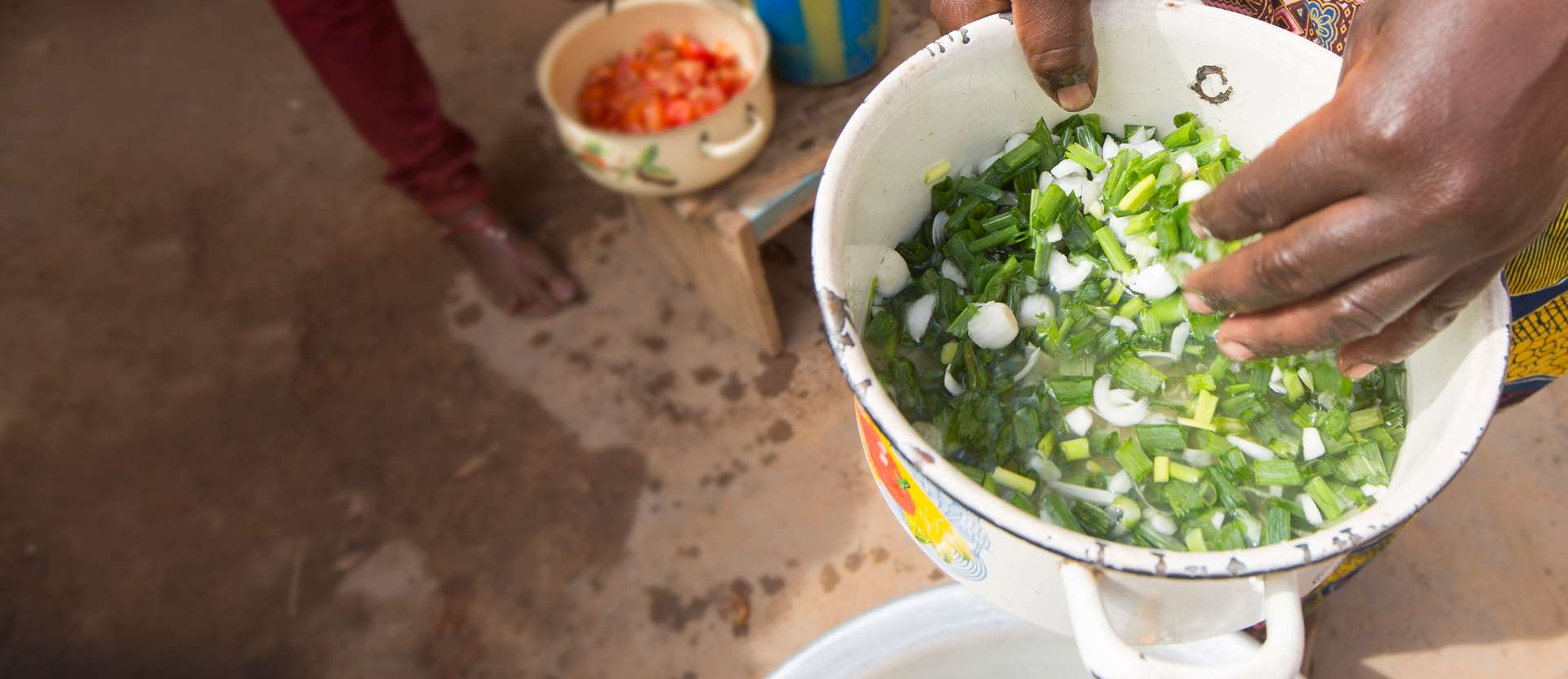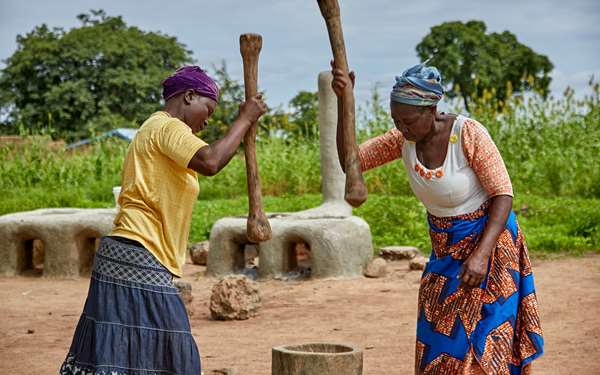
Growing nutritious food
Read about our food security and nutrition approach.Trees provide nutritious fruit, nuts, and leaves, giving people stable supplies of food, even when other crops fail. They provide an alternative, reliable source of food, supporting farming communities to adapt to the effects of the climate crisis.
Through agroforestry, trees also increase the productivity of the land, improving crop yields when grown side-by-side.
This is our food security and nutrition approach.
Why is this needed?
When you rely on farmland for your food and income, the climate crisis makes life tough and unpredictable. Too much or too little rain, rising temperatures and poor-quality soil mean that smallholder farmers struggle to grow enough food.
In many cases, families are forced to eat only once a day and fill up on starchy food like rice, which lacks vital nutrients. As a result, malnutrition and vitamin deficiencies are common where we work, especially in children.


How do we help?
We work with farming families to grow and protect trees because they keep land fertile, and help crops to thrive.
If crops fail because of flooding or drought, trees survive, providing nutritious fruit, nuts and leaves to eat or sell. This gives people stable supplies of food in the face of the climate crisis.
Growing nutrition gardens
Nutrition gardens are small communal village plots dedicated to cultivating fast-growing trees that produce leaves after just three months. Trees like moringa and baobab are highly nutritious and can be used fresh or dry for consumption and sale.
Growing at the heart of communities, these gardens are making nutritious tree products much more locally accessible than when they would otherwise have to be picked in the wild.




